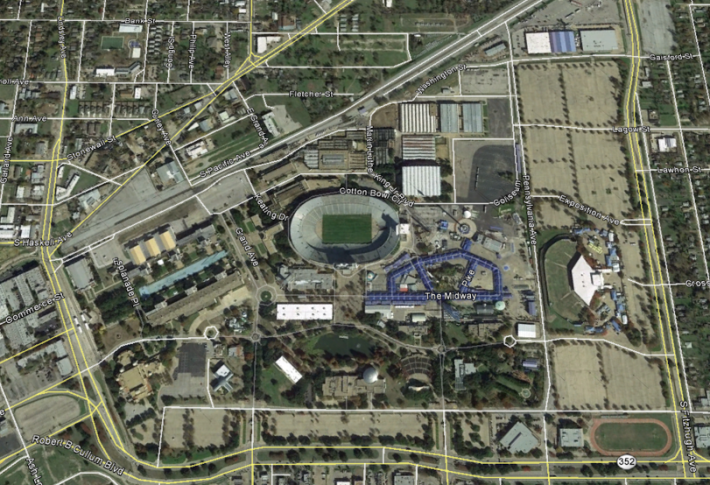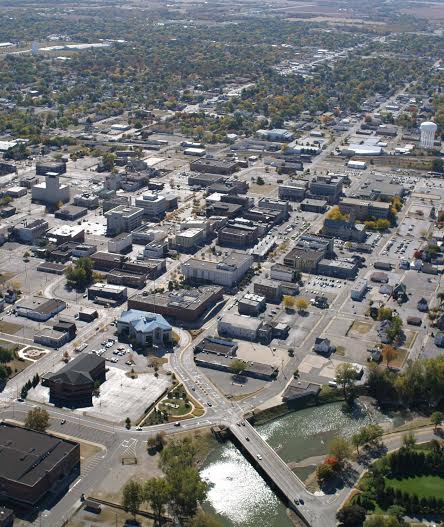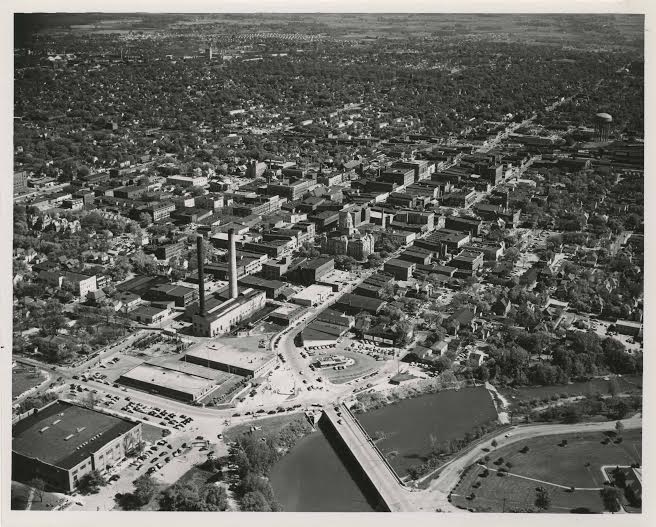We're down to six remaining contenders in this year's Parking Madness tournament after the grey expanse of Niagara Falls, New York, blew out the competition from Rutland, Vermont, claiming the second slot in the Final Four.
Today's pairing: a Texas-sized disaster and a Midwestern moonscape. Only one will advance.
Dallas
Dallas's Fair Park is a 275-acre complex near downtown that is home to the state fair. The enormous parking fields to the right serve that event once per year -- and the rest of the time that land is unused.
In the round of 16, submitter Dallas May called this crater "a reminder of our city’s shame," referring to the destruction of a black neighborhood to clear space for parking.
Patrick Kennedy, who blogs at Street Smart, wrote in to say that while Dallas realizes something needs to be done, the parking situation is actually getting worse:
These are the lowest income areas of the city. Median incomes by census tract range from 12-18k per household. The population dropped from over 70,000 to under 20,000. The Mayor has created (now several) task force(s) to try to address the issue, which should spell out pretty objectively that the status quo is a problem. Meanwhile, the fair keeps adding parking, eating into neighborhoods. Most sane people would like to see all of this parking consolidated into garages and the land repositioned into mixed-income development to try and break down the barriers from the actual park space to the surrounding neighborhoods (or, expanded park space, but the economics just don't work). Currently, those barriers include a security fence, a perimeter sea of parking, obnoxious perimeter stroads, and then the neighborhoods.
Muncie
Above is an aerial image showing downtown Muncie today. Below is a bird's eye view from the 1950s:
Reader Zane Bishop nominated Muncie, telling us the downtown's problems can be traced to "neglect and abandonment after development shifted toward suburban areas."
Local planning professor John West weighed in with a comment on the previous Muncie post, arguing that the city's problems today stem from deindustrialization and plant closures, making it a poor fit for Parking Madness-style notoriety. Other struggling cities have, however, seen deep runs in the tournament spark fruitful discussions about downtown land use.
The next step is up to you, Streetsblog readers.








